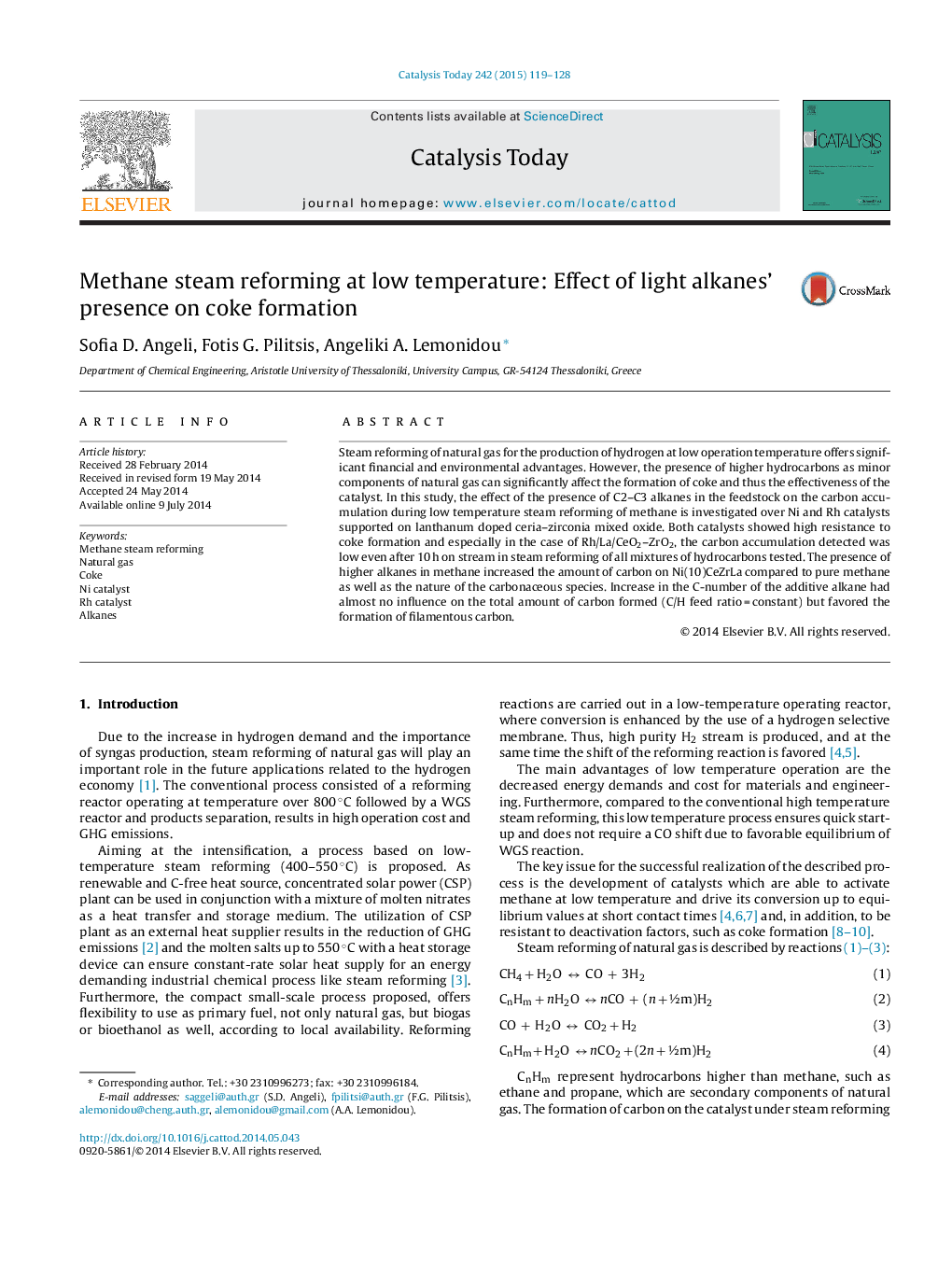| Article ID | Journal | Published Year | Pages | File Type |
|---|---|---|---|---|
| 53826 | Catalysis Today | 2015 | 10 Pages |
•Low temperature steam reforming of natural gas offers significant advantages.•C2–C3 alkanes in natural gas could affect the effectiveness of the catalyst.•Ni and Rh on La/CeO2–ZrO2 showed coke resistance at reforming of mixed alkanes.•Ethane and propane favored filamentous carbon formation on Ni catalyst.
Steam reforming of natural gas for the production of hydrogen at low operation temperature offers significant financial and environmental advantages. However, the presence of higher hydrocarbons as minor components of natural gas can significantly affect the formation of coke and thus the effectiveness of the catalyst. In this study, the effect of the presence of C2–C3 alkanes in the feedstock on the carbon accumulation during low temperature steam reforming of methane is investigated over Ni and Rh catalysts supported on lanthanum doped ceria–zirconia mixed oxide. Both catalysts showed high resistance to coke formation and especially in the case of Rh/La/CeO2–ZrO2, the carbon accumulation detected was low even after 10 h on stream in steam reforming of all mixtures of hydrocarbons tested. The presence of higher alkanes in methane increased the amount of carbon on Ni(10)CeZrLa compared to pure methane as well as the nature of the carbonaceous species. Increase in the C-number of the additive alkane had almost no influence on the total amount of carbon formed (C/H feed ratio = constant) but favored the formation of filamentous carbon.
Graphical abstractFigure optionsDownload full-size imageDownload high-quality image (155 K)Download as PowerPoint slide
